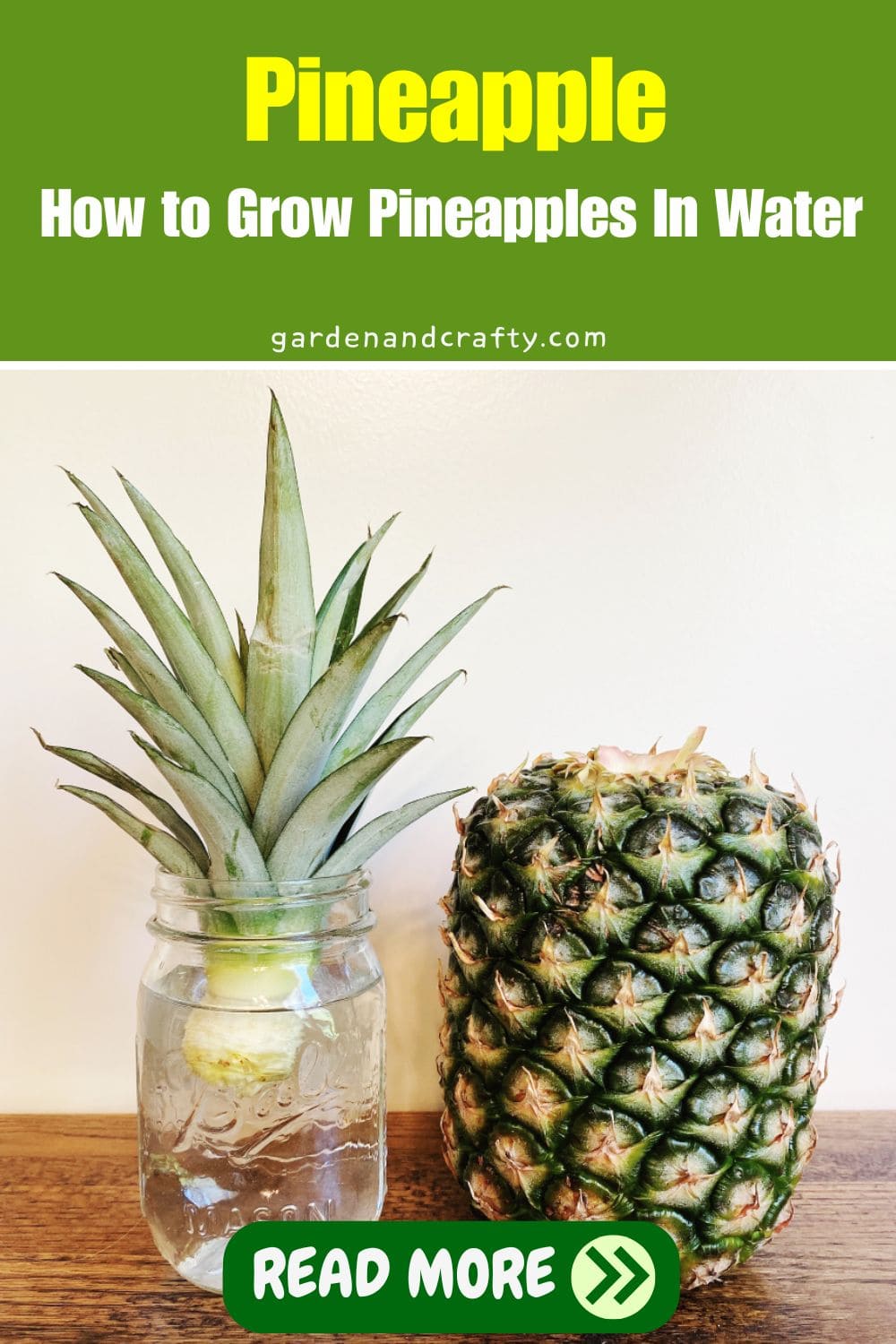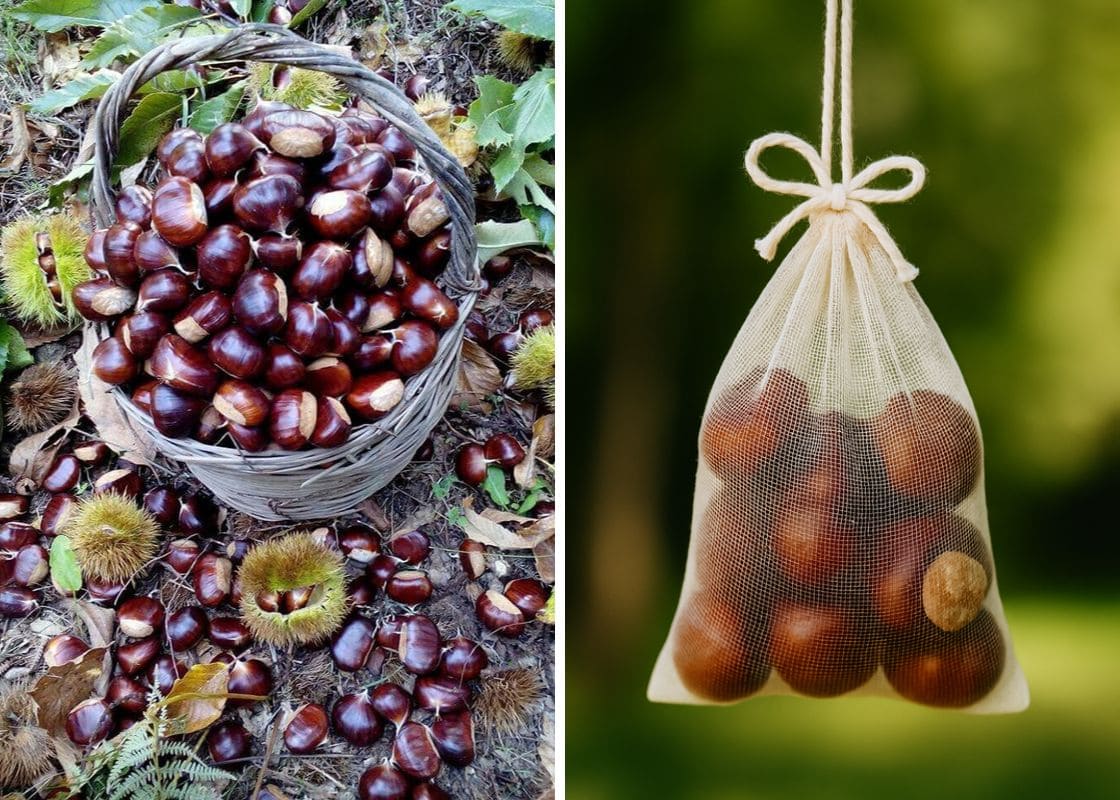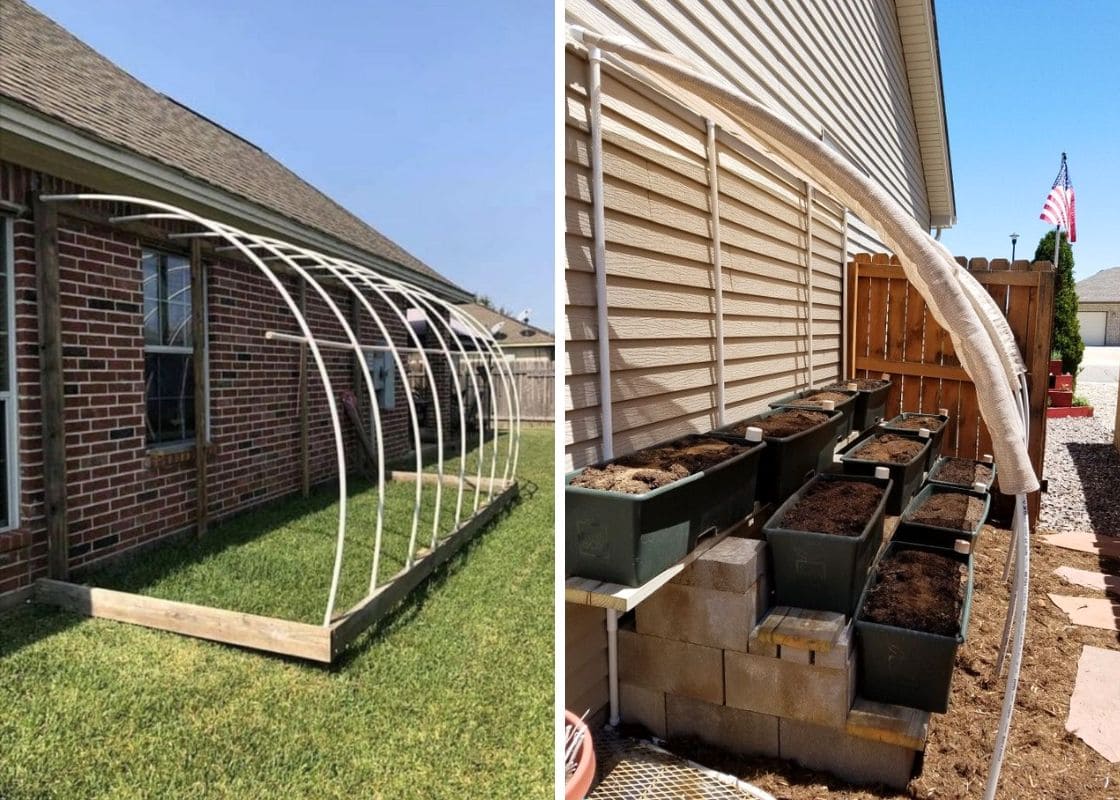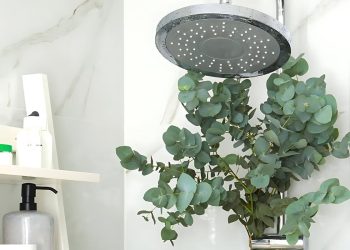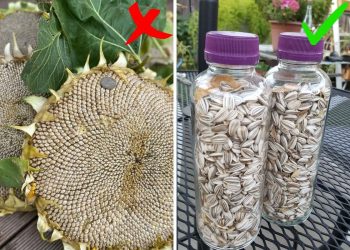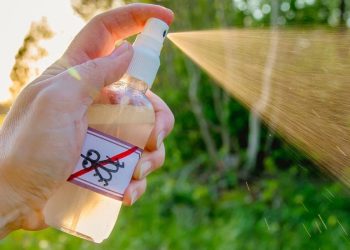No one can resist the juicy flavor of a pineapple. This tropical fruit is not only delicious but also beneficial for health.
Have you ever considered growing pineapples in water at home? The pineapples you grow at home can often be better than those found in the supermarket.
So, next time you buy pineapples, don’t throw away the crowns. Keep them and start growing your own.
This activity promises to bring joy to your family members. Keep reading for an easy-to-follow guide.
About Pineapple
The pineapple (Ananas comosus) is a vibrant tropical plant originating from South America.
Typically growing to a height of 1.0 to 1.5 meters, this plant boasts a short, stocky stem and lush foliage.
The leaves are narrow, fleshy, and trough-shaped, ranging from 30 to 100 centimeters in length. They are adorned with sharp spines along the margins, adding a touch of resilience to the plant.
A single pineapple plant can produce up to 200 flowers, each contributing to the formation of its delightful fruit.
The fruit itself is arranged in two interlocking helices, usually with 8 in one direction and 13 in the other, creating a beautiful, intricate pattern.
As it ripens, the pineapple’s exterior turns a bright yellow, signaling its readiness to be enjoyed. Inside, the fruit is juicy, sweet, and tangy, offering a burst of tropical flavor.
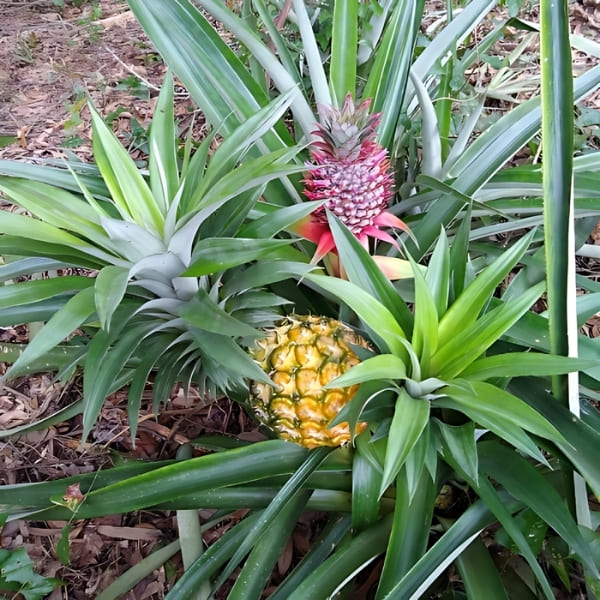
Benefits of Pineapples
Pineapples are highly nutritious. A 165g serving of pineapple chunks contains: Vitamin C (78.9 mg), Manganese (1.53 mg), Vitamin B6 (0.185 mg), Calories (82.5 kcal), Fiber (2.31 g).
Studies have shown that pineapples are rich in antioxidants, which may reduce the risk of heart disease and diabetes.
Bromelain in pineapples can decrease inflammation, swelling, and discomfort after surgery.
Pineapples also support immune function, digestion, and heart health.
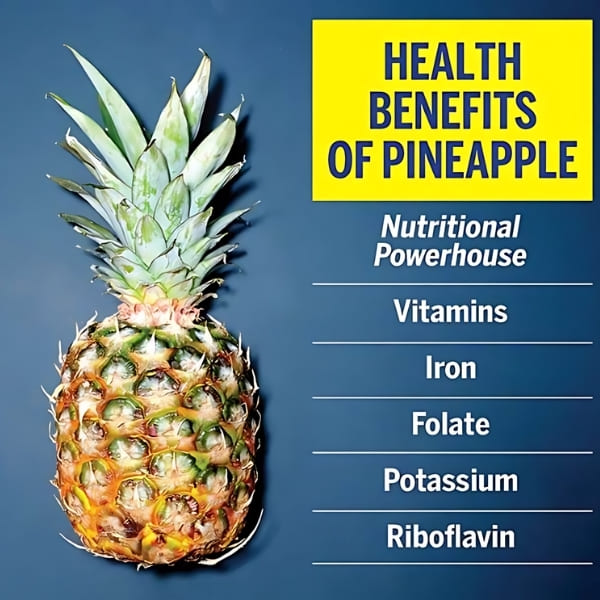
How to Grow and Care Pineapples In Water
How to Grow Pineapples In Water
1. Preparation
A pineapple
Choose a pineapple with fresh, green leaves. Avoid those with yellow or brown leaves and check for any insects around the base.
Remove the crown from the pineapple by twisting it until it separates from the fruit.
Discard the lower leaves to expose the stem, trimming about 1-2 inches from the bottom to promote root growth.
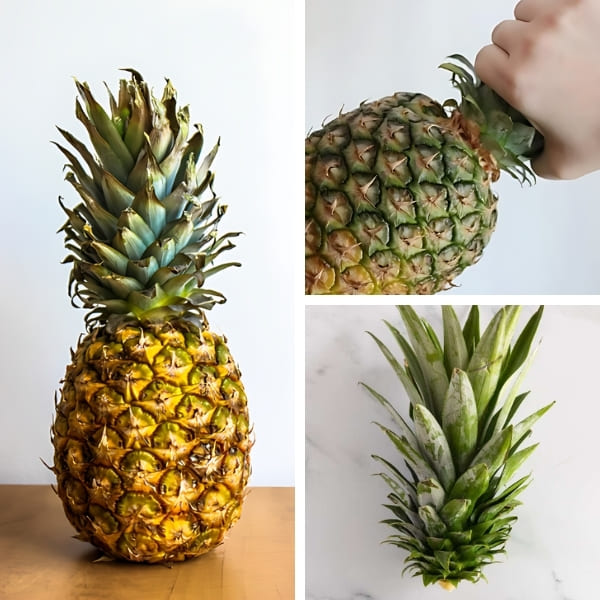
A glass of water
Select a large glass that suits the pineapple crown without submerging the leaves.
2. How to Grow Pineapple In Water
Fill the glass with water, submerging the prepared crown, ensuring the stem’s bottom is underwater while keeping the leaves dry.
Tiny roots will sprout from the stem’s base after 2-3 weeks. When they reach 3-4 inches long, transfer the pineapple to a pot with soil.
Choose a pot at least 12 inches wide with drainage holes. Plant the pineapple in the center, burying the roots and stem up to the base of the leaves.
How to Care for Pineapples
Soil
Pineapple plants prefer well-draining soil. Opt for garden soil with good drainage.
Light
Provide at least 6 hours of sunlight daily. Start with indirect light for 2 to 3 weeks, then move to a sunny spot.
In warm regions, outdoor placement is ideal.
Water
Water the plant once per week or whenever the top 1 to 2 inches of soil feel dry.
Fertilizer
Use a balanced 10-10-10 fertilizer to promote growth.
Feed the pineapple once or twice a month during spring and summer, reducing to once a month in fall and winter.
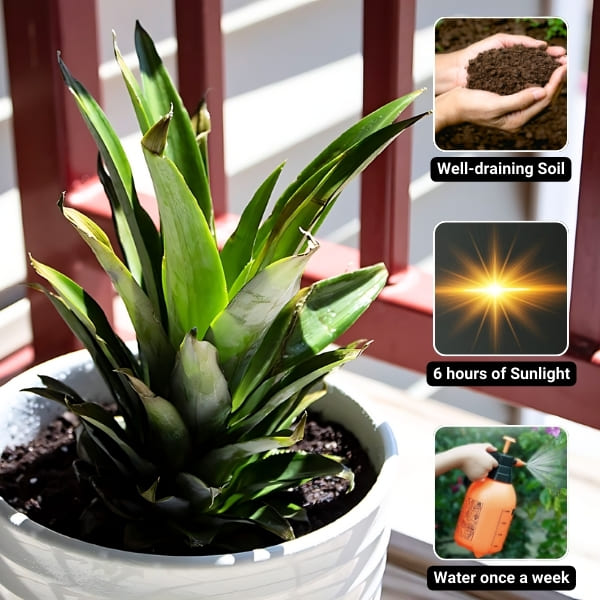
Harvest
Wait for your pineapple plant to mature, which can take 1 to 3 years. Look for a ripe pineapple with signs of a red cone emerging from the center of the leaves.
After six months of development, harvest by cutting the fruit off from the stem just below the base.
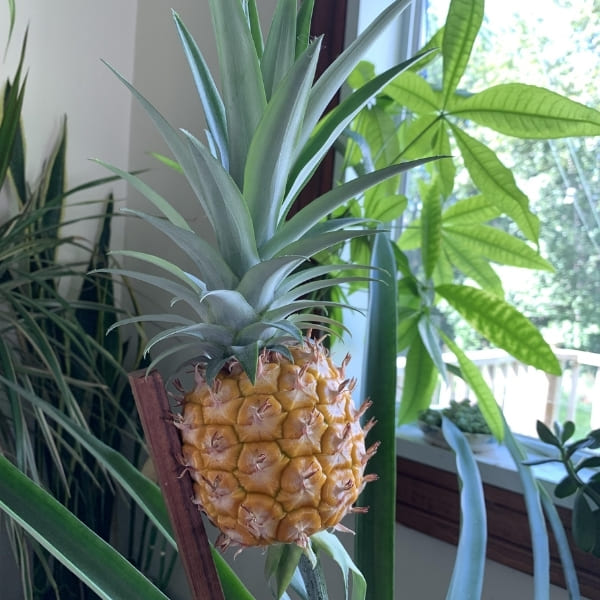
Preservation
1. Refrigerator
To keep an uncut pineapple fresh, store it in the warmest part of your fridge for up to six days.
For cut pieces, place them in an airtight container to maintain their freshness for up to seven days.
2. Freezer
To freeze pineapple, slice it first, spread the slices on a baking sheet, and freeze.
Once frozen, transfer the pieces to airtight containers or bags for long-term storage.
3. Dehydrate
For a tasty, long-lasting treat, use a dehydrator to make dried pineapple slices.
These can last for two to four weeks, providing a convenient snack option.
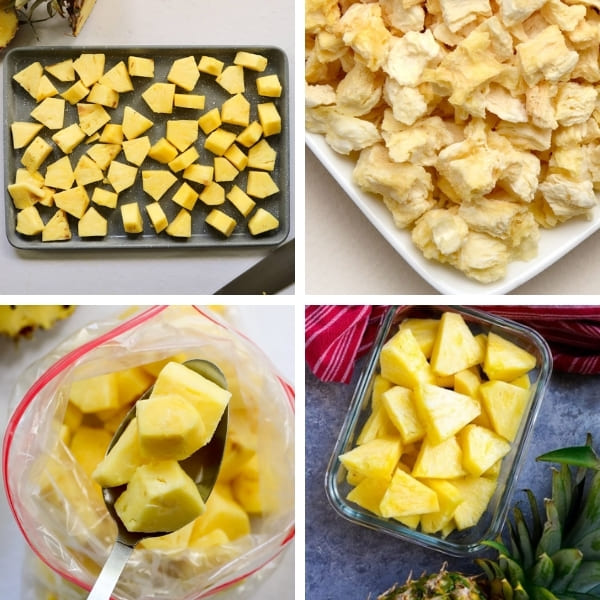
Don’t miss out invaluable tips only in Garden and Crafty. We’d love to hear your thoughts and see your results!
